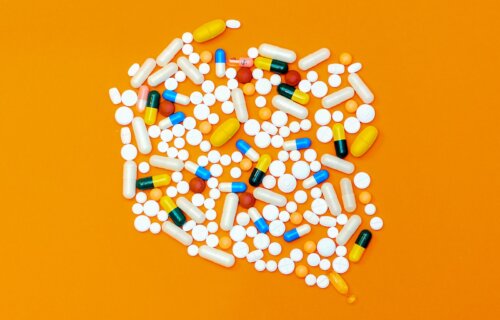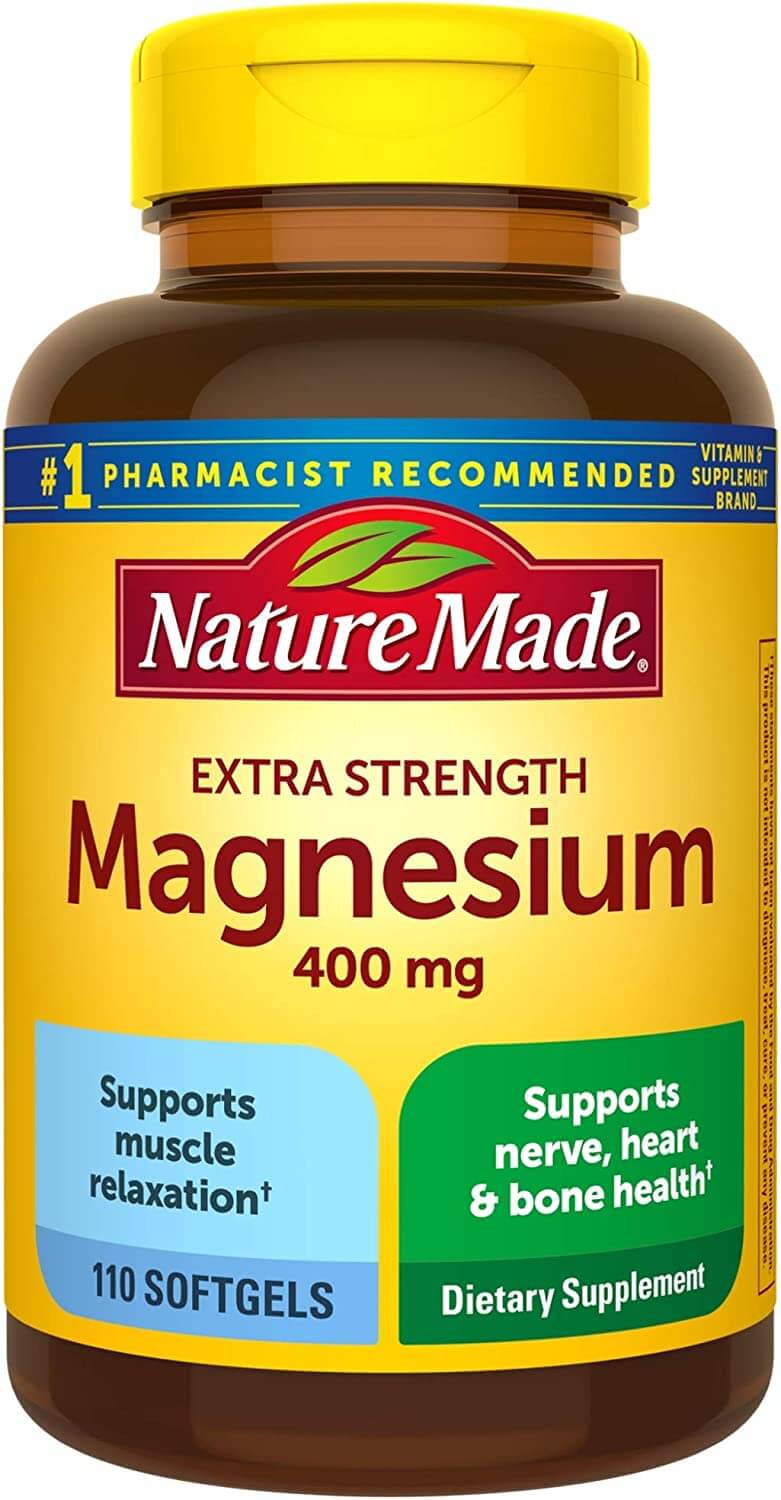Low on energy? If your natural energy stores are low and you’re not a caffeine addict, you may be searching for something to give you a boost. Don’t worry, we have just the thing. We searched the web to find the consensus best vitamins for energy, according to health experts, and we’ve listed them here for you.
What you may not realize is that you’re not alone in the low-energy department. Research shows that three in five Americans feel more tired now than they’ve ever been in their lives. That’s right, in a study of 2,000 respondents, 59 percent say that spending so much time at home since early 2020 has permanently sapped them of their energy. And if you’re part of the work from home crowd, you may be in rough shape. According to the one in three respondents working from home (34%), many of the activities they used to keep their energy levels up are no longer possible. Nearly seven in ten (69%) even claim that working from home has messed with their sleep schedule. And what do these people reach for when they start to feel their energy dip? The study found that 64 percent will reach for drinks that contain caffeine to give them a boost in focus and productivity. But making sure you have adequate amounts of essential, energy-producing vitamins is a much better option.
Lack of essential vitamins is one thing, but there may be another culprit draining your internal energy production: salt. Research shows that salt disrupts the respiratory chain, causing the cells to produce less ATP and consume less oxygen. And what exactly does that mean for you? ATP (adenosine triphosphate) is the “universal fuel” which powers up the body’s cells. It provides the energy people need to perform “chemical work,” like creating proteins and other healthy molecules. This work gives humans the biological tools the body requires to power the muscles and maintain metabolism. The mitochondria (the cell’s batteries) produce ATP through a biochemical process called the respiratory chain, and it was revealed that salt very specifically inhibits complex II in the respiratory chain.
But enough about energy zappers, let’s discuss some energy enhancers. Below is our list of the top five energy boosting vitamins, according to health experts. Of course, we want to hear from you. Comment below to let us know which vitamins keep you performing at peak levels!
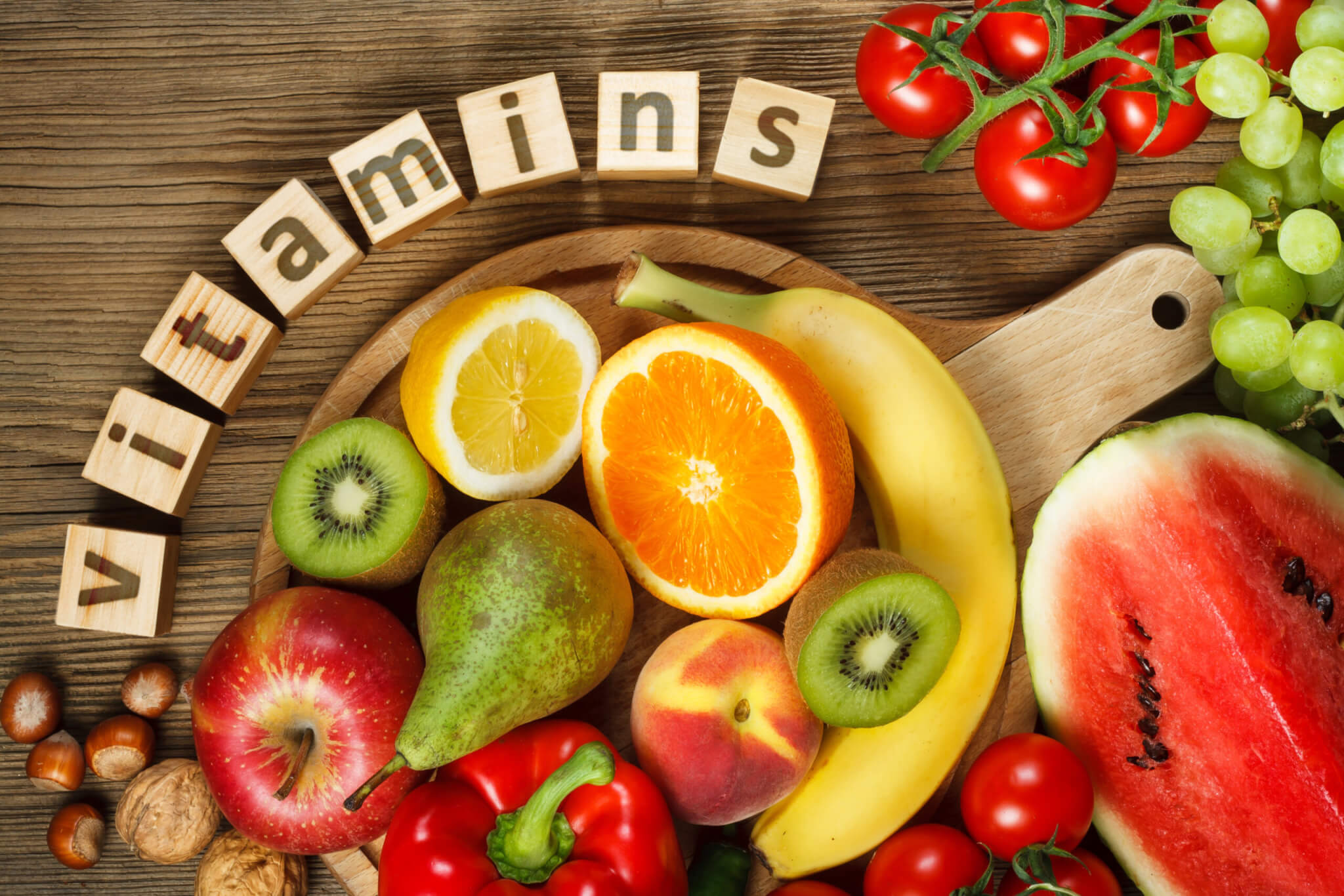
The List: Best Vitamins for Energy Most Recommended by Experts
1. B Vitamins
By far the most recommended vitamins for energy are the B vitamins, of which there are eight, and they are critical in supporting your health: “These vitamins help a variety of enzymes do their jobs, ranging from releasing energy from carbohydrates and fat to breaking down amino acids and transporting oxygen and energy-containing nutrients around the body,” writes Harvard University.
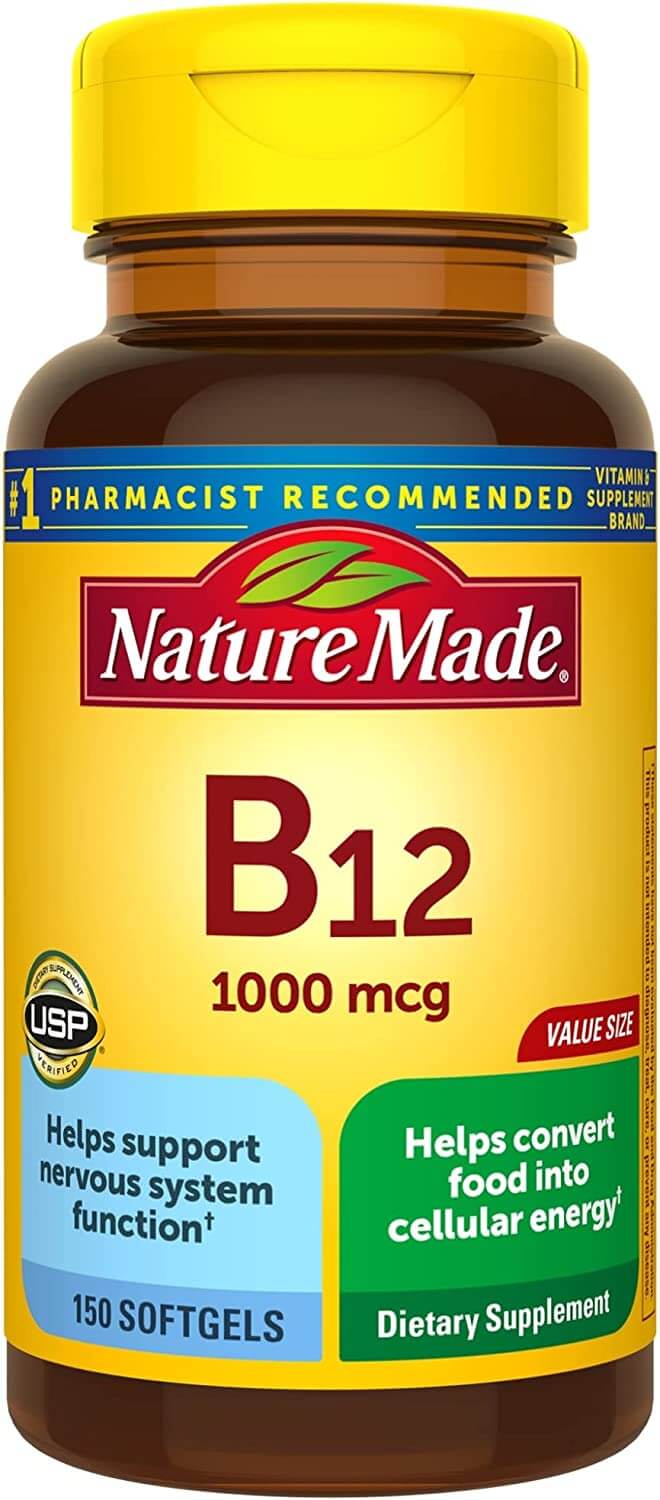
B Vitamins, “except folate, plays a part in at least one step of the energy production system within the cell, according to a review of vitamins and minerals for energy, fatigue and cognition in the journal Nutrition,” writes Forbes. They share that Vitamin B-1, or Thiamine, “helps turn the food you eat into energy. Although most Americans don’t suffer from vitamin B-1 deficiency, people with diabetes or alcohol abuse disorder or who are older may not get enough thiamine. Symptoms of vitamin B1 deficiency include muscle weakness and confusion.” They go on to note that B2 (Riboflavin) and B3 (Niacin) also help turn food into energy. And probably the most well-known, B12, “contributes to keeping your blood and nerve cells healthy.”
In addition to keeping your body’s nerves and blood cells healthy, B12 also “helps prevent a type of anemia that can make you weak and tired,” writes Healthline. “Vitamin B12 is found naturally in a variety of animal proteins, such as meat, fish and dairy products. Many foods are also fortified with B12, allowing most Americans to meet their vitamin B12 needs by consuming a balanced diet containing foods rich in B12.” Some people are more at risk for a B12 deficiency like adults aged 50 or older, vegans, and those with GI disorders.
According to Insider, “experimenting with various vitamins can seem intimidating because you may not be sure of their side effects, and those who take medication need to watch out for interactions. Though it’s often safe to take vitamins daily, your doctor may recommend a different schedule based on your specific needs or whatever medication you may be taking. You should also never exceed the amount noted on the manufacturer’s label, especially without consulting your physician first.”
2. Iron
Technically a mineral, Iron is essential for many functions in the body, including growth and development. According to the NIH, “Your body uses iron to make hemoglobin, a protein in red blood cells that carries oxygen from the lungs to all parts of the body, and myoglobin, a protein that provides oxygen to muscles. Your body also needs iron to make some hormones.”
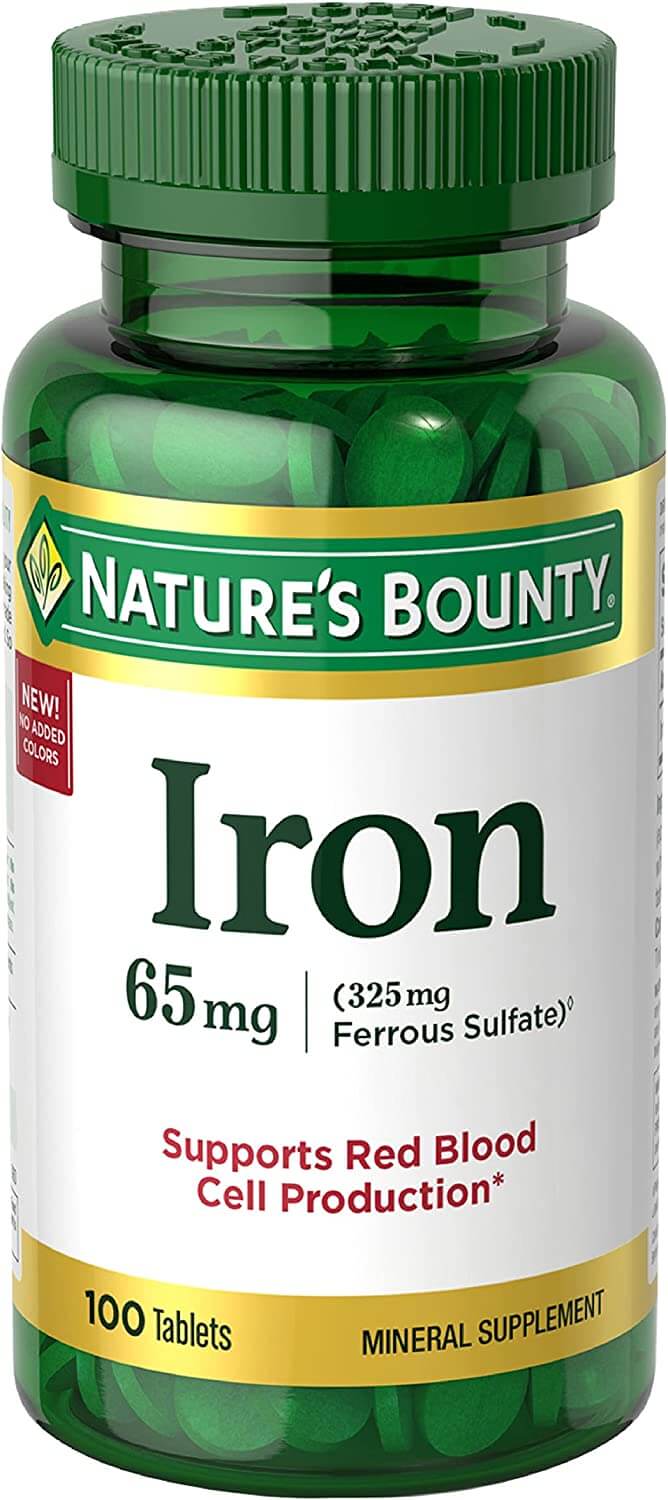
According to Care/of, “Iron deficiency is the primary cause of anemia, which can impair cognitive abilities, decrease immunity, and negatively impact work performance.” And as far as which foods are packed with Iron, they share that “Meat and seafood are excellent sources of dietary iron. If you are vegetarian, then nuts, beans, lentils, spinach, and fortified grain products will be some of your go-to foods for iron. If necessary, iron supplements will help maintain proper levels of iron, but be mindful that iron supplements can cause severe side effects when taken in excess. Make sure to consult with your doctor before supplementing with iron.” Though they do caution that “If you are looking to boost energy you should not just take iron as a supplement. Iron is necessary when there is low iron in the blood which your doctor can measure. Iron deficiency is common among those who menstruate and iron needs increase with pregnancy.”
Medical News Today writes that “One study looked at unexplained fatigue in menstruating women. The participants who supplemented with iron over 12 weeks had a 47.7% decrease in fatigue. Those in the placebo group had a decrease of just 28.8%.” And lastly, they provide a helpful tip: “Eating iron-rich foods with vitamin C can increase absorption, so people should be sure to consume enough fruits and vegetables, especially citrus fruits and leafy greens.”
“If you don’t eat meat, it’s critical to get plant-based iron sources, such as beans and lentils, into your diet,” writes Hone Health. And if you are going to supplement with Iron, they note that synthetic iron can cause constipation. Because of that, they recommend looking for plant-based iron supplements.
3. Magnesium
Magnesium helps to regulate muscle and nerve function, blood sugar levels, and blood pressure, so it’s necessary that you take in adequate amounts. This is another nutrient that’s rather easy to get from food, so chances are you will not need to go out and purchase a supplement.
Your Heights writes, “Magnesium also improves sleep quality, and everyone knows a good night’s sleep can have you feeling full of beans.” And this is why you see ZMA (Zinc, Magnesium, Aspartate) products that claim to aid in restful sleep. And as for how to add more magnesium to your diet: “Foods that contain magnesium include spinach, almonds, and whole grains like brown rice and quinoa.”
WebMD explains the ins and outs: “You can find it in foods like nuts, seeds, whole grains, and dairy. If you have severely low levels of magnesium, it can raise your risk for diseases like diabetes, high blood pressure, and heart conditions…you don’t need a lot of magnesium per day. Just a few servings of magnesium-rich foods can help you meet your daily minimum.”
Hone Health writes, “If you sweat a lot you need to replace it through food or supplementation.” They say to aim for 400-420mg per day. And as for the best sources, they list “Dark leafy greens like spinach, kale, whole grains like oatmeal, shredded wheat, legumes, and also in nuts and seeds like pumpkin seeds and almonds.” And if you are going to supplement with it, know that “There are different magnesium compounds. A good pick is magnesium glycinate. Some studies have found that magnesium may help improve symptoms of insomnia to let you sleep (and more sleep equals more energy).”
4. Coenzyme Q10 (CoQ10)
CoQ10 has gained popularity in the past few years, and you may be wondering what exactly it is and why it has become so popular. Mount Sinai writes, “Coenzyme Q10 (CoQ10) is a substance that helps convert food into energy. CoQ10 is found in almost every cell in the body, and it is a powerful antioxidant. Antioxidants fight damaging particles in the body known as free radicals, which damage cell membranes, tamper with DNA, and even cause cell death.”
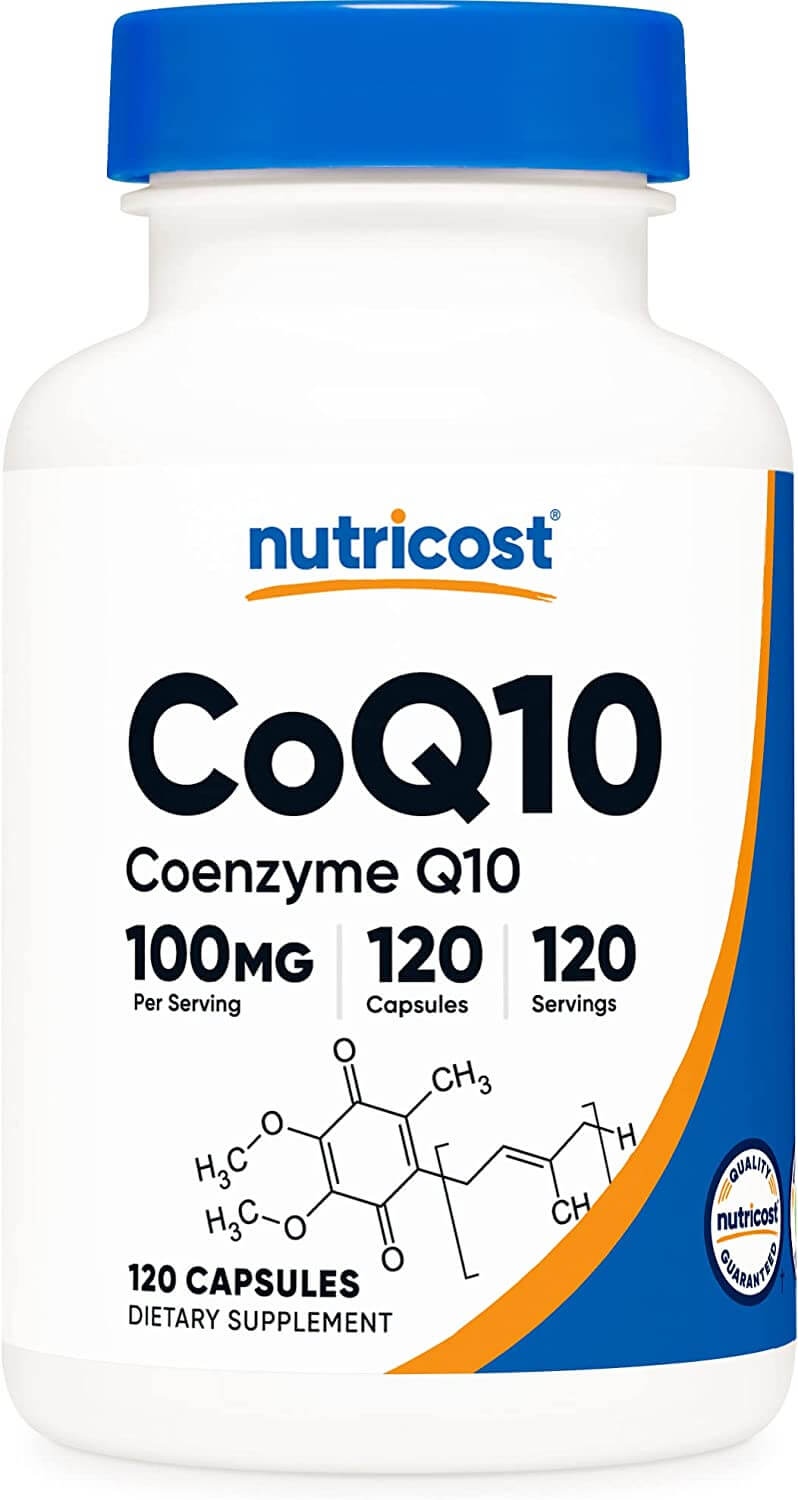
Healthline mentions: “Cells use CoQ10 to make energy and protect themselves from oxidative damage. When levels of CoQ10 decline, your body’s cells cannot produce the energy they need to grow and stay healthy, which may contribute to fatigue.” As for foods that contain this important substance, “Fish, meat and nuts contain CoQ10, but not in large enough amounts to significantly increase levels in your body. Therefore, CoQ10 supplements may be a better solution for reducing fatigue in people who have declining or low levels.”
ReNue Rx writes, “As people age, CoQ10 levels naturally decline in the body, which leads to fatigue and lack of exercise. Taking CoQ10 supplements can maintain levels in the body and increase energy.” Of course, as with any supplement, check with your doctor to see if supplementation is right for you and to find out recommended dosages.
Medical News Today advises: “Those taking blood thinners, taking insulin, or receiving cancer treatment should check with a doctor before taking CoQ10.” As with most supplements, there can be side effects, of which they list: “diarrhea, rash, and insomnia.” As for dosage: “The recommended dosage is 30–90 mg per day, but a person can take as much as 200 mg each day.”
5. Vitamin D
The sunshine vitamin. Though it may not be known for its energy-producing effects, vitamin D landed on most health experts’ lists as a go-to for an energy boost. WebMd writes that “It’s called the ‘sunshine vitamin’ because your skin makes it when you’re exposed to the sun’s UV rays. If you have low levels of vitamin D, it can affect your bone health, increase the risk for certain illnesses, and cause muscle pain and weakness.” And surprisingly, they share that “It’s estimated that nearly 1 billion people in the world have vitamin D deficiency. This is especially true for older people and people with darker skin tones.” They say that “If you think you’re low on this vitamin, let your doctor know. A simple blood test can confirm it.”
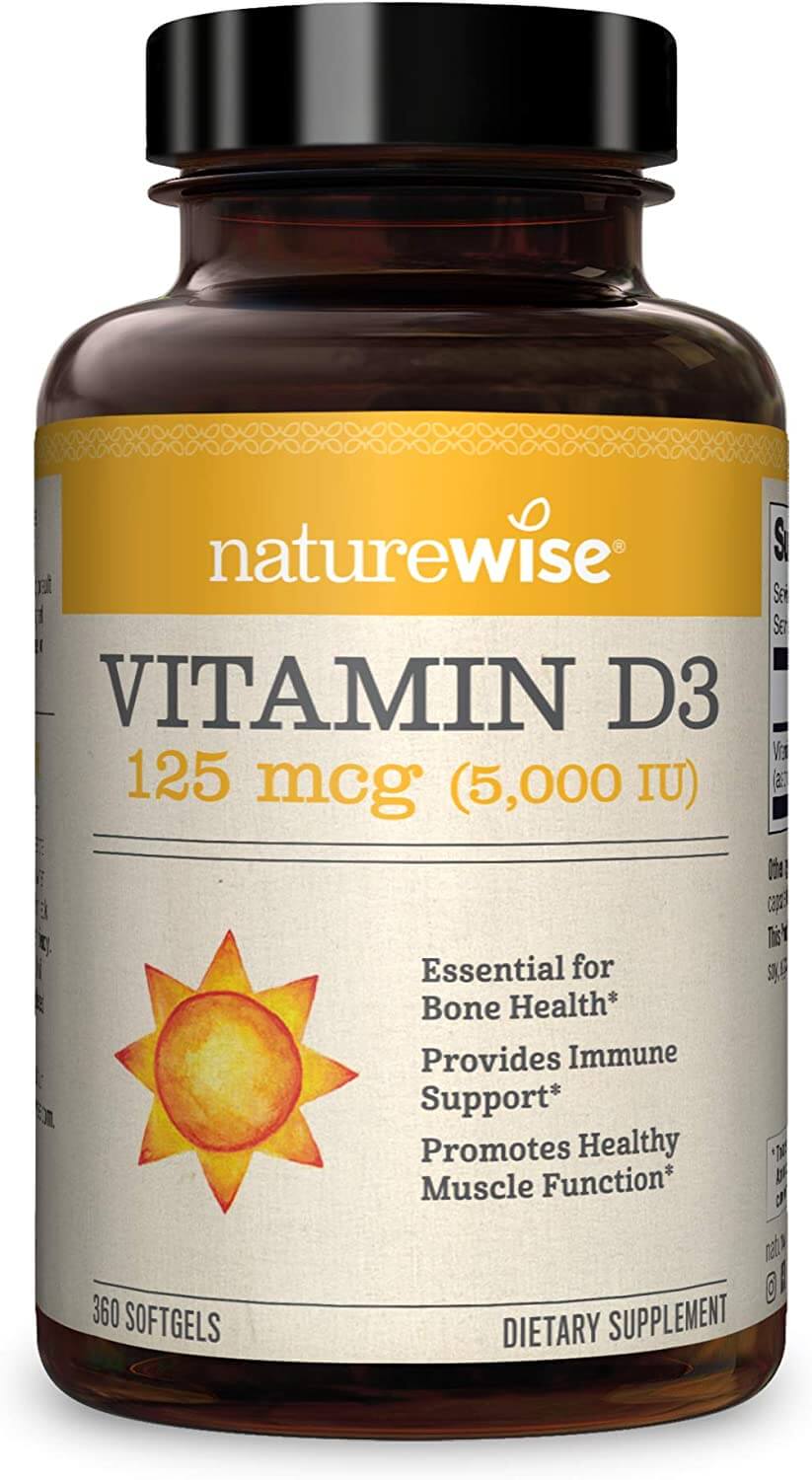
Insider writes, “With roughly 60% of Americans feeling more tired now than ever before, it’s logical to reach for something that might give a much-needed boost of energy. Some people may prefer coffee, others a cup of tea, while certain folks may take a different approach by supplementing with vitamins.” They mention that vitamin D doesn’t directly provide energy, but that deficiency can cause lethargy. “‘Vitamin D is commonly associated with bone health and immune function,’ Sepe says. “And some studies also show that a deficiency in Vitamin D can result in weakness and fatigue.”
“Vitamin D has earned its supernutrient moniker for a reason: the nutrient can do everything from charge your immune system to strengthen your skeleton and may play a role in boosting testosterone levels,” writes Hone Health. “On the flip side, not getting enough may leave you fatigued. And there’s a good chance you’re falling short, considering about 35% of adults are vitamin D deficient.” And if you prefer to get your daily dose from food, they list “Seafood including salmon, halibut, rockfish, sole, egg yolks, cheese, products fortified with vitamin D like some cereals, orange juice, and dairy are also good sources.”
Your Heights writes, “Vitamin D helps the body maintain normal levels of serotonin and norepinephrine, two chemicals in the brain that regulate mood. It also promotes the production of melatonin, a hormone that helps regulate sleep cycles, and plays an important role in regulating the immune system, which can help prevent swelling and irritation throughout your body.”
You may also be interested in:
- Best Vitamins for Healthy Skin
- Best Vitamins for Men Over 50
- Best Vitamins for Hair Growth
- Best Vitamins for Your Immune System
Sources:
- Forbes
- Healthline
- Insider
- Care/of
- Medical News Today
- Hone Health
- WebMD
- Your Heights
- ReNue Rx
- Harvard University (B Vitamins)
- NIH (Iron)
- Mount Sinai (CoQ10)
Note: This article was not paid for nor sponsored. StudyFinds is not connected to nor partnered with any of the brands mentioned and receives no compensation for its recommendations. This post may contain affiliate links.
